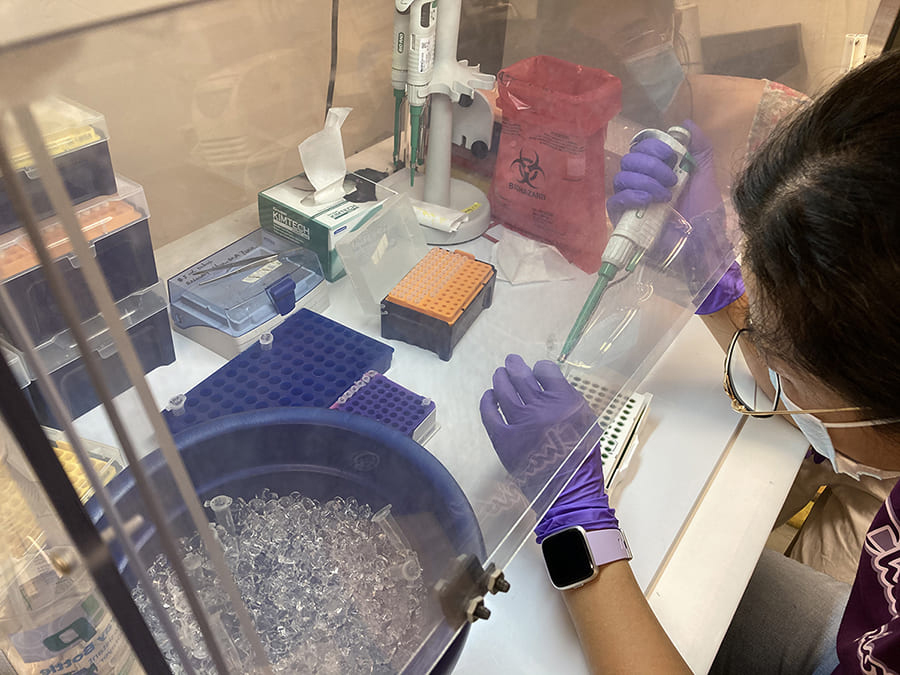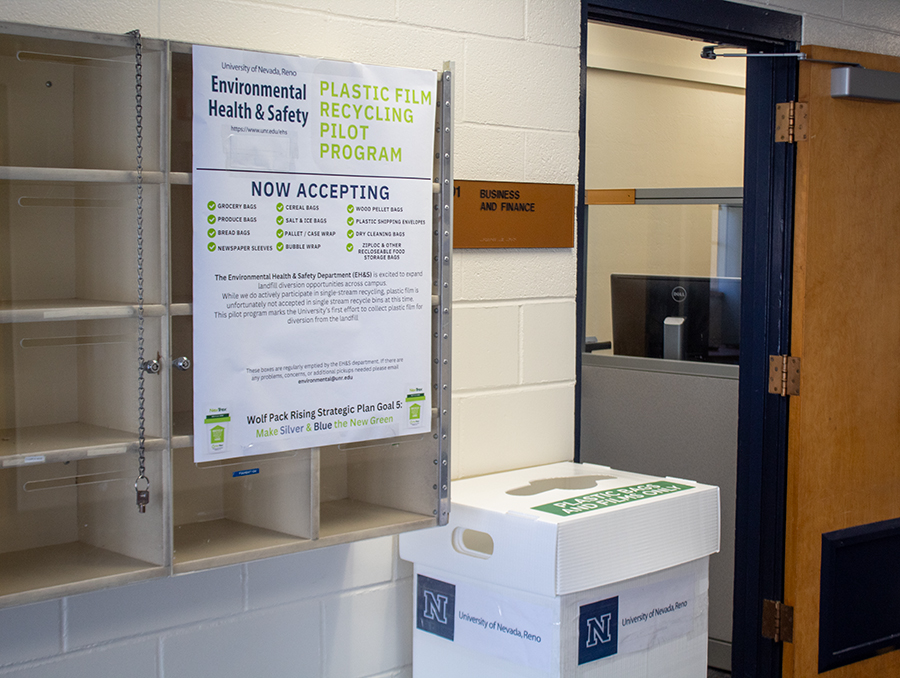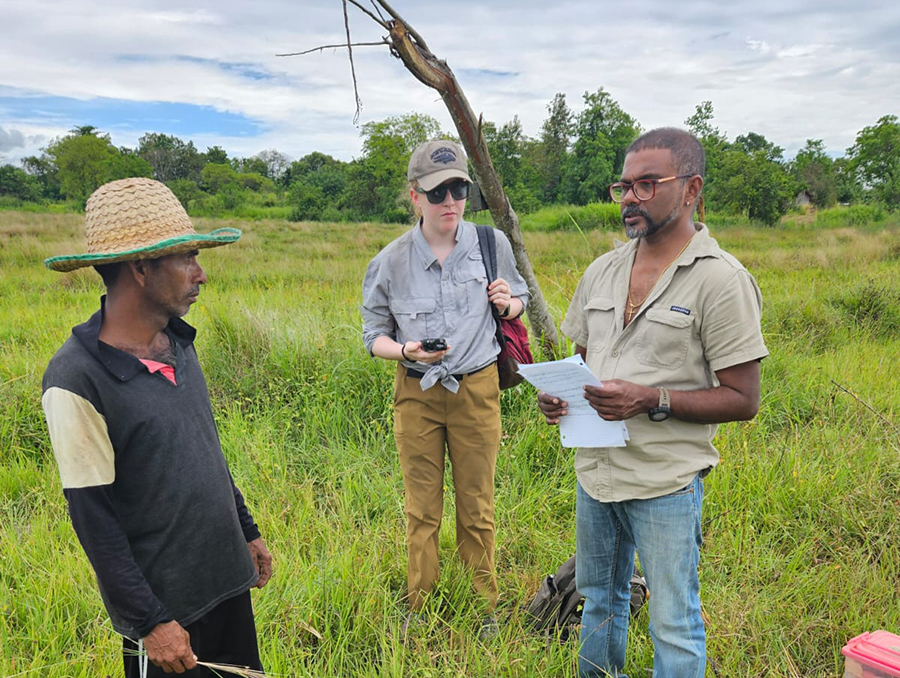The highly contagious COVID-19 Delta variant has been successfully identified and tracked in Truckee Meadows wastewater since June 2021, establishing the monitoring process as a viable means of detecting new COVID-19 variants that may be present in Washoe County.
And while the Truckee Meadows COVID risk meter – based on several factors – remains very high, the level of Delta variant in the community has been trending down since September and the Risk Meter prediction is for the risk in the community to inch lower next week.
In continuing studies and monitoring of Truckee Meadows wastewater, researchers at the University of Nevada, Reno, working with the City of Sparks, the City of Reno and Washoe County, have been able to identify a number of COVID-19 variants that are present in the community, and initially detected the variants in wastewater months before they were identified from clinical monitoring. can detect them in wastewater simultaneously or even before being detected through sequencing of clinical samples.
100% Delta variant
"In Washoe County, almost 100% of the circulating SARS-CoV-2 variants are of Delta (B.1.617.2) lineage and its sub-lineages, AY.25, AY.3, AY.4," Subhash Verma, associate professor in the University of Nevada, Reno School of Medicine and the Department of Microbiology and Immunology, said. "Other variants, including the one currently in the United Kingdom (AY.4.2), are constantly being monitored but we haven’t seen it yet, here in Northern Nevada."
Wastewater-based epidemiology has been used as a complementary tool of SARS-CoV-2 surveillance and has shown great potential in identifying trends of COVID-19 numbers during the global pandemic, including sequencing the total environmental RNA from wastewater to detect the emerging variants of SARS-CoV-2.
“And it’s predictive for seven days ahead, telling us the trend in new positive cases we’ll see in the community in that timeframe,” Pagilla said. “It’s predictive because people don’t get tested until they have symptoms, but our marker concentrations are real time – as soon as the virus is discharged into the wastewater.”
The SARS-CoV-2 concentration in wastewater has proved to be associated with the clinically diagnosed number of COVID-19 cases and can reflect the SARS-CoV-2 variants circulating in the whole community as a pool rather than individual specimens. Importantly, wastewater-based epidemiology is beneficial and economical to estimate prevalence of SARS-CoV-2 variants in a community. Although the individual level testing and genomic surveillance has its own advantages, but with a lower number of people getting tested because of the misconstrued symptoms or asymptomatic nature of infection, wastewater modeling brings out a clearer snapshot of most of the SARS-CoV-2 variants circulating in the community during the time of sample collection.
"We are continuing to monitor wastewater daily for SARS-CoV-2 concentrations and weekly pooled samples for variants sequenced," Krishna Pagilla, an environmental engineering professor at the University and leader of the study, said. "In addition to the variants monitoring, we're sampling key locations – areas influenced by schools, hospitals and other high density facilities – through the sewer systems. We can see the rise or decline in variants before individual testing in clinics can see the increase."
The team will use the methods developed over the last year and a half to see how other respiratory viruses are trending with and without COVID-19.
Monitoring human pathogens
"Monitoring human pathogens, viruses and bacteria through wastewater provides an unique opportunity to look at pathogens circulating in the community," Verma, said. "Along with monitoring SARS-CoV-2 and its variants, we are set up to monitor other respiratory viruses including, Influenza Virus, Respiratory Syncytial Virus (RSV) and Adenoviruses, which causes flu like symptoms."
Lin Li, a post-doctoral scholar in Pagilla’s research group and an expert in biomolecular testing, developed the method to measure the viral signatures (an inactive RNA fragment of the SARS-CoV-2 virus) of COVID-19, which allows them to determine the presence of COVID-19 in the wastewater, using the existing qPCR system (a technology used to measure DNA) in the lab.
Sequencing of SARS-CoV-2 in clinical specimens is done at the Nevada State Public Health Laboratory at the University of Nevada, Reno. Those specimens are used for comparing the variants detected through wastewater with the specimens collected in the community.
The City of Sparks funded the project through the use of American Rescue Plan Act funds to, among a series of project goals, develop a conceptual framework for making wastewater surveillance data actionable through integration into public health planning, reporting, and interventions.
The $1.51 million grant will be used to continue the COVID-19 monitoring and developing research methods to understand the virus behavior. the project is funded through Dec 31, 2022.
"The City of Sparks is excited to have the opportunity to partner with the University of Nevada, Reno and the Nevada Water Innovations Institute to continue monitoring for the presence of the COVID-19 virus in wastewater at the Truckee Meadows Water Reclamation Facility," Sparks Assistant City Manager John Martini said. "The results of this research provide community leaders with timely information regarding current and future rates of infection – information that is vital to making informed decisions on how best to manage the pandemic."
The cornerstone of all future monitoring and wastewater surveillance will be to coordinate with health authorities and sponsors to disseminate information rapidly for actionable pandemic management for public health protection.
Verma is principal investigator on the variants sequencing side of the research project and Pagilla is the principal investigator on the wastewater monitoring side. Lin Li, post-doctoral scholar in the College of Engineering Department of Civil and Environmental engineering, is main researcher doing the field and lab data collection for wastewater.
Other collaborators of the study are: Mark Pandori, Director of the State Health Lab and Department of Pathology and Laboratory Medicine at the University, Andrew Gorzalski, Nevada State Public Health Laboratory; Timsy Uppal, Department of Microbiology and Immunology, University of Nevada, Reno School of Medicine; and Paul Hartley, the University's Nevada Genomics Center. Pagilla is also the chair of the Department of Civil and Environmental Engineering and director of the Nevada Water Innovation Institute based at the University, which includes regional agency partners.















